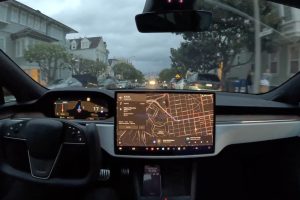- 🚗 Elon Musk addressed why Tesla has no plans to acquire Rivian, emphasizing the challenges in the automotive industry.
- 🇺🇸 Musk’s remarks were made during a political event in Philadelphia, demonstrating his multitasking between business and political engagements.
- 🎯 Rivian is facing financial difficulties despite having innovative products and a dedicated consumer base.
- 🤝 Previous investments from Ford and Amazon in Rivian have either ended or become non-exclusive.
- 🌍 Rivian targets a different market segment than Tesla, focusing more on outdoor and camping enthusiasts.
The automotive industry is a rapidly evolving landscape, especially when it comes to electric vehicles (EVs). Elon Musk, CEO of Tesla, has made it clear that there are no plans for Tesla to acquire its EV competitor, Rivian. This decision has sparked curiosity and debate within the industry. In this blog post, we will explore the reasons behind Tesla’s stance, analyze Rivian’s current financial challenges, and delve into how Rivian’s market strategy differentiates from Tesla’s.
The Political Stage and Business Discourse
Elon Musk, never one to shy away from multitasking, addressed the topic during a political event in Philadelphia. Despite the primary focus being political, Musk’s comments on Tesla and Rivian provided valuable insights into his business acumen and the strategic direction of Tesla. This demonstrates how intertwined Musk’s business and political engagements can be, reflecting the broader influence Tesla holds beyond just the automotive industry.
The Challenges of the Automotive Industry
The automotive industry is notorious for its complexity and high barriers to entry. Musk highlighted these challenges, noting that only two American car companies—Ford and Tesla—have never gone bankrupt. The implication here is clear: launching and sustaining an automotive company is immensely challenging, even with innovation and a robust consumer base. This backdrop sets the stage for understanding why Tesla may not be eager to acquire another automotive brand, especially one facing its own financial uncertainties.
Rivian’s Financial Landscape
1. Financial Struggles
Rivian, despite its innovative products and solid consumer base, is grappling with financial difficulties. Unlike Tesla, which has managed to overcome financial hurdles over several years, Rivian is still on the path to profitability. This could be a cautionary tale for Tesla, highlighting the risks involved in merging with a company still navigating its financial footing.
2. Previous Investments
Rivian has lost key financial backing, as past investments from Ford and Amazon have either ended or shifted to non-exclusive arrangements. This change in investment dynamics could further complicate Rivian’s path to financial stability and growth.
Differentiated Market Strategies
1. Targeting Distinct Consumer Segments
Rivian’s market strategy differentiates itself from Tesla by targeting a different consumer segment. While Tesla focuses on a broad range of consumers with a variety of vehicular models, Rivian is carving out a niche catering to outdoor and camping enthusiasts. This specialization allows Rivian to tap into a unique market but also presents challenges in achieving larger-scale growth comparable to Tesla’s.
2. Product Development and Innovation
Both companies are known for their innovation; however, their approaches differ. Rivian is focusing on creating vehicles that serve niche purposes, which may limit widespread adoption but increase brand loyalty within its targeted market.
Why Tesla Isn’t Buying Rivian
Given the significant challenges within the industry and Rivian’s current position, Tesla’s hesitation to merge makes strategic sense. Acquiring Rivian would not only mean integrating a company with existing financial woes but also necessitates a shift in market strategy to fully leverage Rivian’s unique consumer base. Elon Musk’s decision underscores a cautious approach to mergers and acquisitions, prioritizing Tesla’s current trajectory and strengths.
Conclusion
Tesla’s decision not to acquire Rivian is a strategic choice rooted in the complexities of the automotive industry and Rivian’s unique position within it. While both companies continue to innovate and shape the EV market, their separate paths suggest a robust competitive environment that ultimately benefits consumers. Understanding these dynamics provides valuable insights into the strategic decisions that drive the automotive industry’s future.





